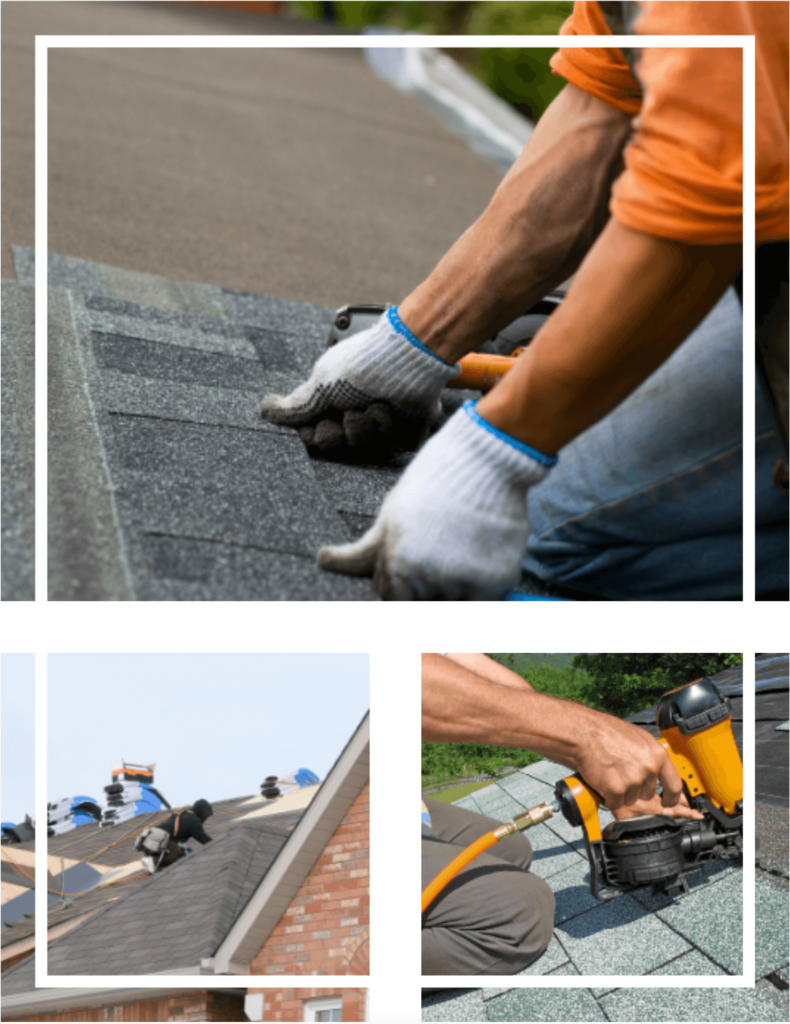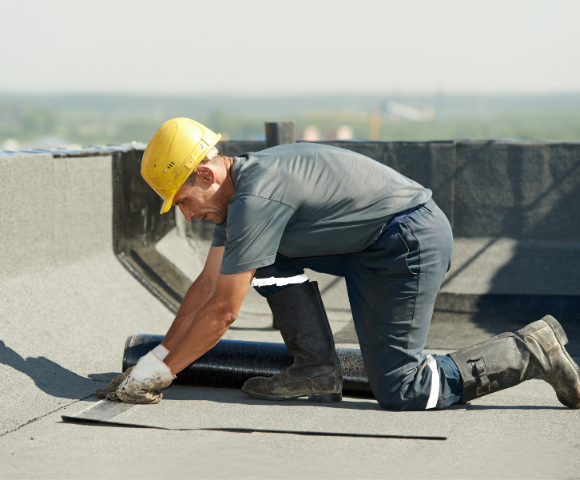Quick Take: Why Colorado Roofers Are Your Best Bet for High-Altitude Homes Colorado roofers possess unique expertise in handling the challenges of high-altitude homes, making them your best choice for roofing needs. Their knowledge of local weather patterns, materials suited for elevation, and installation practices ensures durability and safety.
Understanding the Unique Challenges of High-Altitude Roofing
When it comes to roofing in Colorado's mountainous terrain, the challenges are numerous. At higher elevations, homeowners face distinct environmental factors that can impact their roofing systems significantly. Understanding these challenges is crucial for homeowners looking to maintain or replace their roofs effectively.

Weather Variability
High-altitude areas in Colorado experience extreme weather fluctuations. From intense snowstorms in winter to fierce sun exposure during summer, the weather can quickly change. This variability necessitates a roofing system that can withstand both heavy snowfall and UV radiation.
Material Requirements
Not all roofing materials are created equal when it comes to high altitudes. Materials need to be lightweight yet durable enough to handle snow loads while also being resistant to UV degradation. Colorado roofers are familiar with which materials perform best under these conditions.
Installation Techniques
Roofing installation at high altitudes requires specialized techniques and equipment. Experienced Colorado roofers understand how elevation affects structural integrity and can implement proper installation methods to ensure long-lasting roofs.
Why Colorado Roofers Are Your Best Bet for High-Altitude Homes
Choosing the right contractor is essential when it comes to maintaining a home in such challenging environments. Here’s why opting for Colorado roofers is a smart decision:
Local Expertise
Colorado roofers possess a deep understanding of local climate conditions and building codes specific to high-altitude regions. This knowledge translates into more effective solutions tailored specifically to your home's peaktopeakroofing.com Denver roofers needs.
Understanding of Local Regulations
Roofing companies near me often have experience navigating local regulations and permits required for construction in elevated areas. This familiarity can save you time and potential headaches during the roofing process.
Access to Quality Materials
Many Colorado roofers have established relationships with suppliers, ensuring access to high-quality materials suited for the distinctive demands of high-altitude homes. This access means you’re likely getting the best products available on the market.
Key Benefits of Hiring Local Roofers in Colorado
Selecting a local roofing contractor offers numerous advantages that go beyond mere convenience:
- Proximity: Quick response times for emergencies or repairs. Community Reputation: Established trust within the community provides peace of mind. Tailored Solutions: Customized roofing plans that account for specific environmental factors. Post-Installation Support: Ongoing maintenance services ensure longevity.
These key benefits illustrate why choosing local roofers contributes significantly to successful roofing projects.
The Importance of Proper Insulation in High Altitudes
Insulation plays a pivotal role in maintaining energy efficiency in homes located at higher elevations. Poor insulation can lead to heat loss, increased energy bills, and uncomfortable living conditions—especially during those long winters.
Types of Insulation Suitable for High Altitudes
Colorado roofers are adept at installing various types of insulation that cater specifically to altitude-related challenges:
Spray Foam Insulation: Ideal for sealing gaps and enhancing thermal resistance. Rigid Foam Board Insulation: Provides excellent thermal performance without adding significant weight. Fiberglass Batt Insulation: A cost-effective option but requires proper installation techniques to avoid air leaks.
By focusing on effective insulation strategies, your home will remain comfortable year-round while minimizing energy costs.
Common Roofing Issues Faced by Homeowners at High Elevations
High-altitude homes encounter several recurring issues that require professional attention from skilled roofers:
Snow Load Management
The weight of accumulated snow can be substantial, leading to potential structural damage if not properly managed. Roofs designed by knowledgeable contractors will include features like steep slopes or reinforced structures capable of handling heavy loads.
UV Damage Prevention
The intensity of sunlight increases with elevation, causing faster wear on roofing materials. Roofs installed by experienced roofing contractors incorporate UV-resistant materials or protective coatings that enhance longevity.
Ice Damming Issues
In colder months, ice dams can form along eaves and gutters, leading to water infiltration inside homes. Local roofers know how to design roofs with adequate ventilation systems that prevent this issue from arising altogether.
Finding Reliable Roof Repair Services Near You
Searching for “roof repair” should yield several options; however, finding reliable service providers is essential when addressing urgent repairs or maintenance needs:
What To Look For In A Roofing Contractor?
Licensing & Insurance: Confirm they are licensed and insured before hiring. Experience & Specialization: Ensure they specialize in high-altitude roofing solutions. Customer Reviews: Read testimonials from previous clients about their service quality. Warranty Offerings: A good warranty reflects confidence in workmanship. Written Estimates: Obtain detailed estimates outlining scope and costs upfront.Ensuring these criteria are met will help you select trustworthy professionals who will meet your home’s unique demands effectively.
Addressing Safety Concerns with High-Altitude Roofing Projects
Safety should always be a priority during any construction project—especially at high elevations where risks increase significantly due to steep pitches and precarious work environments:
Safety Protocols Followed by Professional Roofers
Reputable Colorado roofers adhere strictly to safety protocols including:
- Use of harnesses and fall protection systems Regular safety training sessions Comprehensive inspections before commencing work
Incorporating these safety measures mitigates risks associated with working at height while ensuring compliance with OSHA regulations.
Cost Considerations When Hiring Roofing Contractors in Colorado
Understanding costs associated with hiring Denver roofers is vital for budgeting purposes:
Factors Influencing Roofing Costs
Material Selection: Premium materials naturally increase overall costs. Roof Size & Complexity: Larger or more complex roofs require more labor. Accessibility Issues: Difficult sites may necessitate additional equipment or labor costs. Seasonal Demand Fluctuations: Prices might vary based on peak seasons versus off-seasons.By weighing these factors carefully against your budgetary constraints, you’ll be better equipped when discussing projects with potential contractors.
Frequently Asked Questions About High-Altitude Roofing Solutions
Here are some common queries homeowners have regarding high-altitude roofing:

1. What makes roofing different at high altitudes?
High altitudes present unique environmental challenges like extreme weather conditions and increased UV exposure which affect material choices and installation methods.
2. How do I find reputable Denver roofers?
Look for licensed contractors with positive customer reviews who specialize in high-altitude installations; ask friends or neighbors for recommendations as well!

3. Can I install my own roof?
While DIY projects may seem appealing, hiring professional roofing contractors ensures safety standards are met while providing expertise tailored specifically toward altitude-related challenges.
4. What types of roofs last longest in high altitudes?
Metal roofs generally last longer than asphalt shingles due primarily because they resist corrosion better while handling extreme temperature variations efficiently too!
5. Do I need special permits for my roofing project?
Yes! Most municipalities require permits before starting any significant renovation project; consult local authorities about regulations prior moving forward!
6.What’s the typical lifespan of a high-altitude roof?
Depending on material used (e.g., metal vs asphalt), expect lifespans ranging from 20 years up until over 50 years—provided routine maintenance occurs throughout its life cycle!
Conclusion
When it comes down to it, choosing professional Colorado roofers means investing wisely into safeguarding your property against harsh environmental elements prevalent within elevated regions—ensuring longevity through expert craftsmanship tailored uniquely toward those very challenges!
Reflecting on this discussion about climate considerations alongside cost implications should empower homeowners seeking reliable solutions suited explicitly towards their individual needs! So remember—when faced with choices regarding your rooftop's success—it truly pays off thereby opting directly towards locally experienced professionals who understand every nuance involved!